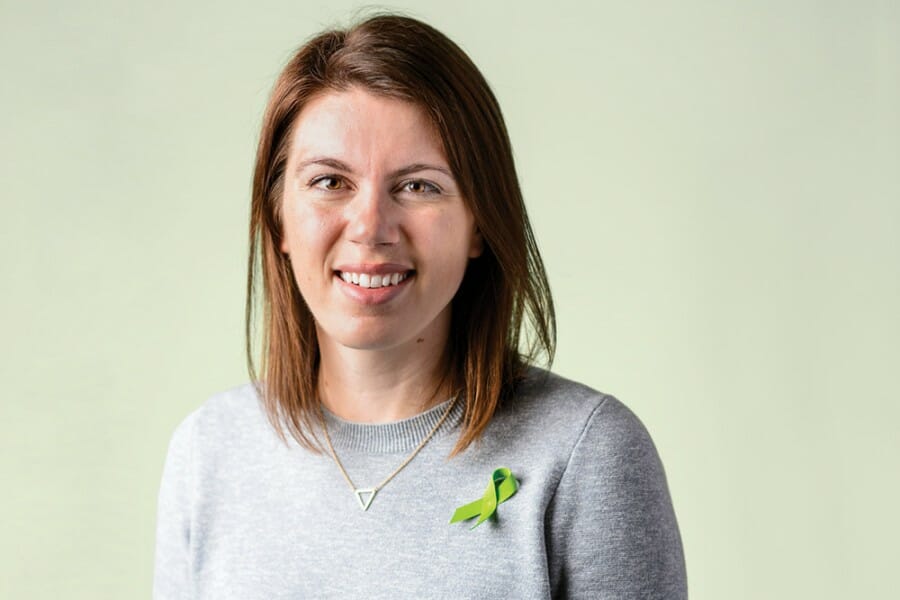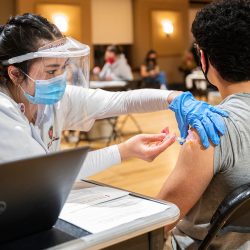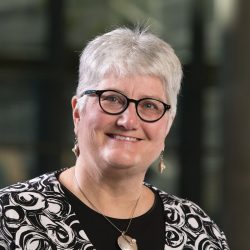Suicide Prevention
Suicide rates have increased 25 percent over the last two decades, according to a Centers for Disease Control and Prevention (CDC) report released the same week that celebrity chef Anthony Bourdain and fashion designer Kate Spade took their own lives. As the UW’s suicide prevention coordinator, Valerie Donovan ’11, MA’12 is developing proactive policies and coordinating resources and support networks across campus.
Why are we having a national conversation about suicide prevention now? Why not years ago?
It’s a couple of different things. One is that [the] CDC report gave us some data that shows this is a concerning trend … [and] that we don’t know as much as we should and we need to do better. Secondly, I think [with] recent celebrity suicides, [combined] with social media and 24-hour news cycles, there’s just been a lot [more] attention and discussion. The third element that is actually important and powerful is that people are becoming more and more comfortable talking about mental health … and I see this reflected on our campus, where we do have some data about decreases in stigma.
If we’re discussing and researching suicide prevention more, why are suicide rates still rising?
That’s a complex question and I don’t have a single answer for that. One thing that we’re taking a look [at] intentionally on campus right now, and that other groups are doing, too, is thinking about means restriction and environmental safety. In Wisconsin, firearms are the leading means for suicide. We know that access to lethal means increases suicide risk. So we can do a lot of great work in prevention and education and in how we communicate about suicide, but it’s also important that we’re thinking about things like access to lethal means and some of those other environmental strategies.
How can we address suicide as a public health issue on campus?
Relationships are foundational to effective prevention. When I think about changing the culture, especially in a complex system like UW–Madison, I often come back to this quote that I heard: “Change happens at the speed of trust.” So having those trusting relationships with [campus and community] partners is foundational to moving the needle on some of these big, complex issues.
What should I do if I’m worried a loved one is at risk?
Warning signs look different from person to person. I tell people to trust your gut, and if something seems like it might be off, it’s always worth checking in with your friends and loved ones. [Respond by] practicing empathy, listening without judgment, asking open-ended questions, validating, and recognizing how challenging that must be for that person. It’s also really important, if you’re concerned about suicide, to ask directly about it. A lot of people are worried that if [you ask], that might put the idea in their head. But research shows that’s actually an effective prevention strategy that makes you a safe person to talk to about those feelings.
Interview conducted, edited, and condensed by Nina Bertelsen x’19
Published in the Winter 2018 issue




Comments
No comments posted yet.